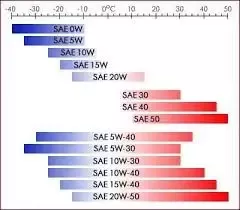Diagnosing engine noise requires keen observation and a systematic approach. Here are the steps to help you identify the source of those mysterious sounds:
- Listen Actively:
- Start the engine and listen carefully.
- Pay attention to the type of noise, its intensity, and when it occurs (during acceleration, idle, or deceleration).
- Categorize the Noise:
- Squealing, tapping, knocking, grinding, or rattling? Each type of noise points to different issues.
- Squealing: Check the serpentine belt for wear or tension.
- Tapping/Clicking: Investigate oil levels, valvetrain, or lifter issues.
- Grinding: Could be related to bearings, clutch, or brakes.
- Knocking: Address detonation promptly.
- Check Fluid Levels:
- Oil: Low oil can cause tapping sounds. Check the dipstick.
- Coolant: Insufficient coolant can lead to overheating and engine noise.
- Transmission fluid: Ensure proper levels.
- Inspect Belts and Pulleys:
- Serpentine Belt: Look for cracks, fraying, or looseness.
- Timing Belt: If worn, it can cause knocking sounds.
- Examine Valvetrain Components:
- Valve Clearance: Incorrect clearance can lead to tapping noises.
- Lifters and Camshafts: Worn components can cause ticking sounds.
- Investigate Exhaust System:
- Leaky Exhaust: Inspect for holes or loose connections.
- Catalytic Converter: A failing converter can create rattling noises.
- Check Engine Mounts:
- Damaged mounts can transmit vibrations and noise.
- Inspect for cracks or wear.
- Listen to Specific Areas:
- Use a mechanic’s stethoscope to pinpoint the noise source.
- Focus on the valve cover, timing cover, and engine block.
- Compression Test:
- Measure cylinder compression to identify internal issues.
- Low compression can cause knocking sounds.
- Professional Inspection:
- If unsure, consult a qualified mechanic.
- They can use diagnostic tools and experience to pinpoint the problem.
Remember, early diagnosis and timely action can prevent costly engine damage.
Read More: Why is My Engine Noisy After Adding Oil?


